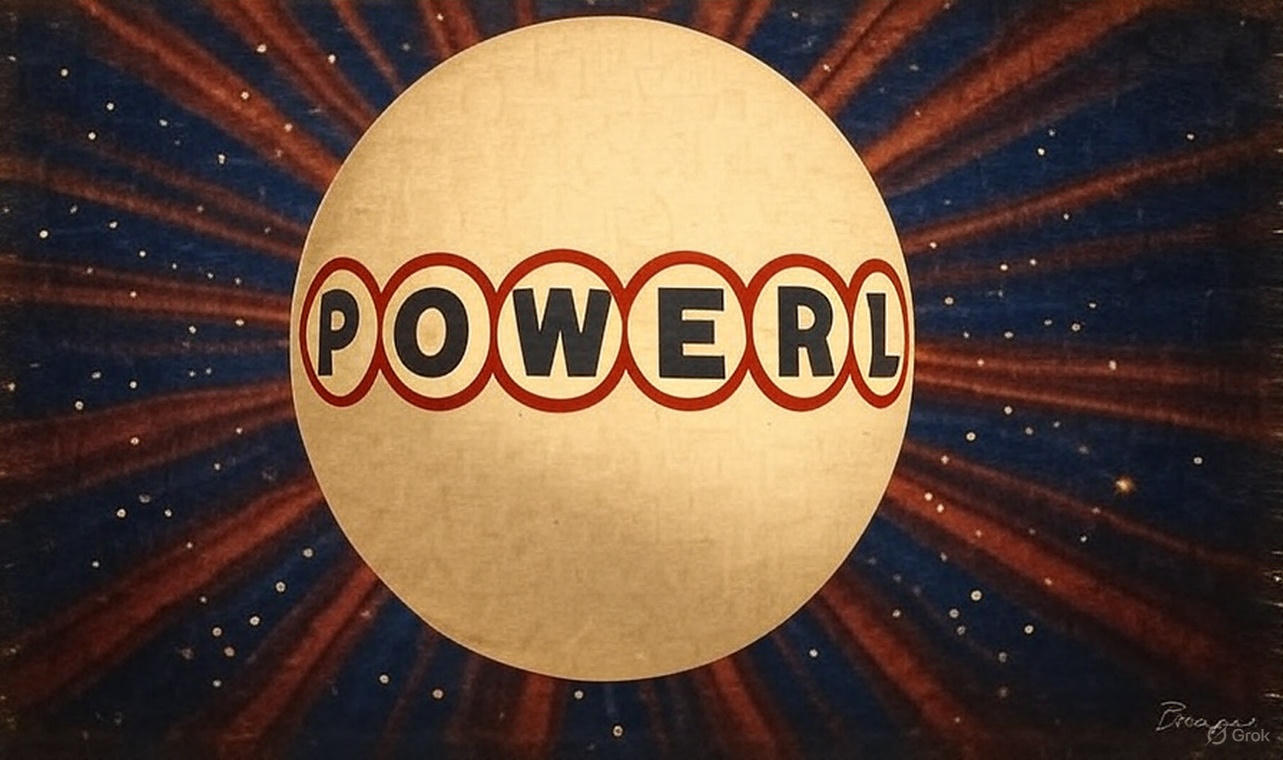Michigan Woman Wins $100K Powerball Using ChatGPT Numbers
In a remarkable intersection of technology and luck, a Michigan woman has won $100,000 in the Powerball lottery by using numbers suggested by the AI chatbot ChatGPT. Tammy Carvey, 45, from Wyandotte, Michigan, asked the AI for a set of lottery numbers, and they matched four white balls and the Powerball, doubling her prize through the Power Play option.
This incident highlights how AI is increasingly entering everyday life, even in unexpected ways like lottery number selection—though experts emphasize that this win was pure chance, not predictive AI magic.
🇺🇸 MICHIGAN WOMAN WINS $100K POWERBALL USING NUMBERS FROM CHATGPT
— Mario Nawfal (@MarioNawfal) October 17, 2025
Tammy Carvey, 45, from Wyandotte just proved AI can do everything except guarantee lottery wins - but sometimes it gets close enough.
When the jackpot hit $1 billion, she asked ChatGPT for numbers.
The AI… https://t.co/pM2LTurVow pic.twitter.com/IF5TMrc7uP
1. The Winning Numbers and How She Got Them
During the September 6, 2025, Powerball drawing, which reached a staggering $1 billion jackpot, Carvey decided to experiment with AI. She asked ChatGPT for numbers, receiving:
- White balls: 11, 23, 44, 61, 62
- Powerball: 17
Four white balls plus the Powerball matched, initially awarding $50,000, which doubled to $100,000 with Power Play. Carvey purchased her ticket online and confirmed her win at the lottery headquarters with her husband, David, receiving a ceremonial oversized check.
2. Plans for the Winnings
Rather than splurging, Carvey has practical plans: paying off her home mortgage and saving the rest. Her grounded approach contrasts with the extravagant lifestyles often associated with lottery winners, reflecting a responsible and realistic mindset toward sudden fortune.
3. AI’s Role in Lottery Wins
This story has ignited conversations online about AI’s potential role in random events. Social media users shared humor, skepticism, and curiosity regarding AI-assisted luck. Lottery officials clarify: all drawings are random, and no tool—AI included—can influence the outcome. The odds of this exact win remain 1 in 913,129.
4. Powerball Basics
- Ticket cost: $2
- Power Play: $1 extra to multiply non-jackpot prizes up to 10x
- Double Play: $1 extra, second drawing with prizes up to $10 million
- Drawings: Mondays, Wednesdays, Saturdays at 10:59 p.m. ET
- Availability: 45 states + D.C.
Even with AI suggestions, responsible play is essential. Wins are rare, and no method guarantees success.
5. Broader Implications of AI in Daily Life
Beyond entertainment and gaming, ChatGPT is increasingly integrated into apps for music, real estate, and graphic design, making it a versatile digital assistant. Carvey’s win adds a playful anecdote to AI’s growing presence in everyday activities, showing how technology can be creatively applied—even in areas governed entirely by chance.
6. FAQs
Q1: Can ChatGPT predict lottery numbers?
A1: No. ChatGPT cannot predict outcomes—it generates random or structured numbers based on prompts. Tammy Carvey’s win was coincidental.
Q2: What is Power Play in Powerball?
A2: Power Play is an extra $1 option that multiplies non-jackpot prizes up to 10x. Carvey used this to double her $50K win to $100K.
Q3: Are online lottery purchases safe?
A3: Yes. Official state lottery websites provide secure online ticket purchases.
Q4: What are the odds of winning any Powerball prize?
A4: Odds vary by prize tier; for matching four white balls plus the Powerball, it’s 1 in 913,129.
7. Conclusion – A Neutral Perspective
Tammy Carvey’s story is a testament to the unpredictable nature of luck and the creative ways people are experimenting with AI. While it may inspire curiosity about AI-assisted activities, it also underscores the reality that chance cannot be engineered. AI tools like ChatGPT are powerful assistants for daily tasks, but their role in fortune-based events remains anecdotal. Ultimately, Carvey’s $100,000 win is a rare intersection of timing, luck, and human ingenuity—an entertaining reminder of how technology and randomness can collide in surprising ways.


0 comments